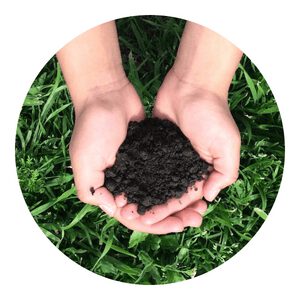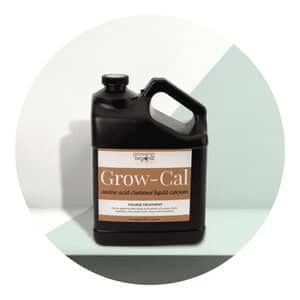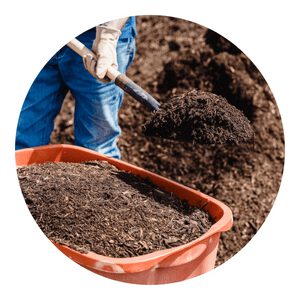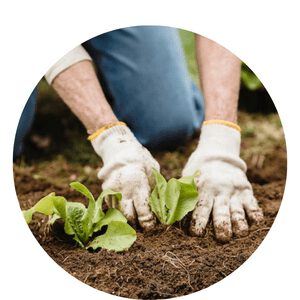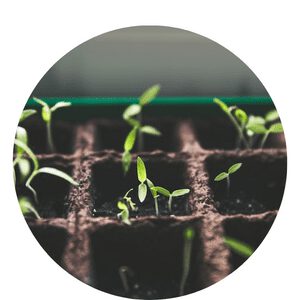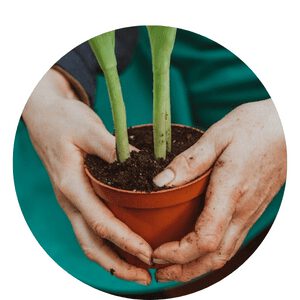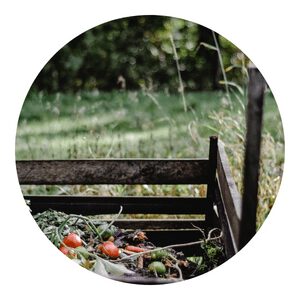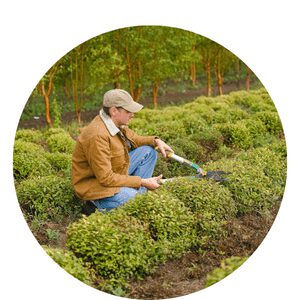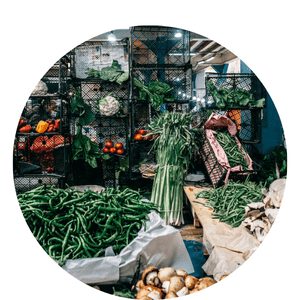Sustainable Practices for the Organic Gardener
Organic gardening is becoming increasingly popular, as many people are focusing on sustainable practices to ensure they are producing fresh, healthy foods in an environmentally conscious way.
Sustainable practices involve making sure that the garden is managed in a way that has minimal impact on the environment and with consideration for future generations.
In order to be successful in this endeavor, it is important for the organic gardener to understand what constitutes sustainable practices and how to put them into action.
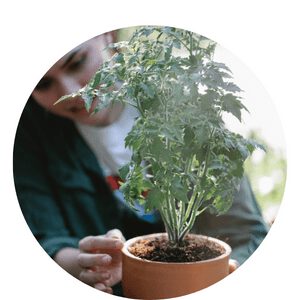
Sustainable Practices Menu
Sustainable practices in organic gardening
Organic gardening is a great way to cultivate healthy, vibrant plants without using any synthetic chemicals or harmful pesticides.
But organic gardening does not just mean avoiding the use of chemical products; sustainable practices are also an important part of successful organic gardening.
Sustainable practices help ensure that the soil and environment remain healthy for years to come.
The definition of sustainable practices in organic gardening includes maintaining soil fertility, reducing water waste and energy consumption, avoiding overuse or misuse of resources, and utilizing natural pest control methods instead of synthetic chemical ones.
By implementing these practices into your garden routine you can enjoy a thriving garden while safeguarding both your plants and the environment they live in.
For example, adding compost to your soil regularly helps maintain its fertility as well as improves water drainage and aeration—both essential factors in creating an optimal growing environment for the home gardener.
Importance of sustainable practices in maintaining a healthy and productive garden
Organic gardening is becoming increasingly popular as people become more aware of the environmental impact of their lifestyle and seek to reduce it.
Sustainable practices are key to maintaining a healthy and productive garden, enabling you to get the most out of your outdoor space while minimizing your footprint on the environment.
Organic growing practices help ensure that plants are free from synthetic chemicals and fertilizers which can be harmful to both us and our environment.
By avoiding these pollutants, we can keep our gardens healthy, reducing the risk of pests or diseases taking hold and damaging crops.
Furthermore, sustainable methods help protect pollinators such as bees which would otherwise be harmed by hazardous chemical compounds.
Additionally, sustainable practices will ensure that resources used in the garden can be replenished naturally without relying on artificial supplements like pesticides or fertilizers.
Sustainable Practices in the Garden
Sustainable practices are of the utmost importance for any organic gardener.
It is essential to ensure that all plants, resources, and energy used in gardening is done so responsibly and ethically.
The first step towards a more sustainable garden is composting. Composting is the practice of breaking down organic matter into nutrient-rich materials that can be reused in the garden as fertilizer.
Not only does this process reduce waste, but it also provides an excellent source of nutrients for plants.
Additionally, compost helps to retain water in soil which can reduce water usage in landscaping dramatically.
By following sustainable practices such as composting and conserving resources like water, organic gardeners can create a healthier environment while still providing beautiful gardens with lush vegetation and abundant harvests.
Water conservation techniques
Organic gardening is an increasingly popular sustainable practice that provides numerous benefits for the environment.
One of the most important elements of successful organic gardening is water conservation.
Rainwater harvesting involves capturing and storing rainwater from rooftops or other surfaces to be used later in the garden.
This method helps reduce strain on municipal water sources and improves soil fertility due to its high mineral content.
Drip irrigation is another effective way to conserve water while irrigating plants efficiently; this technique utilizes small plastic tubes and emitters that release targeted amounts of water at specific times, allowing for optimal absorption by plants without waste.
Sustainable practices I can recommend, To the gardener keen on being organic. Organic soils for a strong foundation, Healthy fertilizers to sustain your relation. Organic pest control when needed, Grow beneficial bees and critters instead. Crop rotations keep soil abundantly fed, Focus on sustainability and reap what you've planted!
Chappy The Gardener
Soil conservation techniques
Organic gardeners looking to practice sustainable methods in their gardens can utilize soil conservation techniques such as composting and cover cropping.
Composting is an effective way to return nutrients back into the soil, while cover crops protect the soil from erosion and compaction.
These are two popular methods that organic gardeners can adopt for a healthier, more productive garden.
Composting involves taking organic material like kitchen scraps or yard waste and breaking it down through decomposition into a nutrient-rich material known as humus.
This process helps improve overall soil structure, which results in better water retention and aeration of the soil.
Additionally, by adding compost to your soil annually you dramatically increase its fertility over time without needing any synthetic fertilizers or chemicals.
Cover cropping is another powerful tool used to keep the nutrients in your organic garden’s soils balanced.
Energy conservation techniques
As organic gardeners, we strive to maintain a healthy balance between our environment and our gardens.
One of the best ways to achieve this is through energy conservation techniques.
These include utilizing solar energy, investing in energy-efficient tools and equipment, and making sure that the plants in the garden receive optimal sunlight exposure.
Solar energy is an excellent way for organic gardeners to minimize their carbon footprint while providing adequate power resources for their gardens without relying on non-renewable sources of electricity.
Solar panels can be used to generate electricity for lighting and other needs during the day or solar water heaters can be installed to provide hot water for gardening activities such as soil preparation or drip irrigation systems.
Energy-efficient tools and equipment are also essential in helping organic gardeners reduce their environmental impact by limiting their use of non-renewable resources like fossil fuels.
Techniques for reducing waste
Reducing waste is an important part of sustainable practices for the organic gardener.
Reusing and recycling materials can help to minimize the amount of waste produced, while still allowing you to maintain a healthy garden.
Here are some techniques that can help you reduce your environmental impact when gardening organically:
Firstly, use natural resources such as compost and mulch to enrich soil for growing plants.
Composting organic waste such as leaves, grass clippings, and vegetable scraps can provide essential nutrients for your plants while reducing the amount of material in landfills.
Additionally, mulching with materials like wood chips or straw can help retain moisture in your soil and reduce weeds.
Secondly, reuse containers whenever possible instead of buying new ones.
Sustainable Practices in the Home
Sustainable practices can be implemented in the home as well as in the garden.
Start by reducing your energy consumption by switching to LED or CFL bulbs, and unplugging electronics that are not in use.
Consider installing programmable thermostats and solar panels, if possible. Compost any food scraps you generate instead of throwing them away; you can then use it as fertilizer for your garden!
Additionally, using natural cleaning products and cutting down on single-use plastics will also help reduce your environmental footprint.
Finally, look into other ways that you can reuse items around your home such as repurposing containers for storage or donating unwanted items instead of throwing them out.
Using sustainable materials in the garden
Organic gardening is a great way to create a sustainable and healthy environment for both you and the plants in your garden.
One of the main principles for organic gardening is using sustainable materials that are natural, renewable and recyclable.
Wood, stone and recycled materials are some of the most popular options when it comes to creating an eco-friendly outdoor space.
Using these types of materials can help reduce your carbon footprint while also providing a unique look in your garden.
Wood is one of the best materials to use when it comes to sustainability as it’s widely available, renewable, easily recycled, and aesthetically pleasing.
Whether you choose wooden planters or furniture pieces such as benches or chairs, they will not only stand up well against any weather conditions but will age beautifully over time too.
Choosing organic and environmentally-friendly products for the garden
Organic gardening is becoming increasingly popular amongst gardeners, as it helps to reduce the negative environmental impacts that conventional gardening can have.
It is important for organic gardeners to choose products that are both organic and environmentally friendly when caring for their gardens.
These sustainable practices will help to protect the environment from harmful pollutants while still allowing you to enjoy the beauty of your garden.
Organic pest control and fertilizers are essential for keeping your potted plants and outdoor gardens healthy without sacrificing the health of our planet.
The use of natural ingredients such as neem oil, garlic, and soap can help keep pests away without introducing harsh chemicals into the environment.
Additionally, using composted materials such as grass clippings or kitchen scraps instead of chemical fertilizers will provide your plants with essential nutrients while reducing waste.
Practices for reducing energy and resource consumption in the home
Sustainable living practices are becoming increasingly popular, especially in the home and garden.
As organic gardening continues to rise in popularity, it’s important to explore ways to reduce energy and resource consumption while maintaining a healthy garden.
Here are some sustainable practices for the organic gardener that will help conserve energy and resources.
Gardeners can start by investing in durable, quality tools that require minimal maintenance and repairs.
A garden hose with a shut-off valve is extremely useful for conserving water by preventing run-off.
Mulching helps retain moisture in soil, eliminating the need for frequent watering.
Composting is another great way to reduce waste by using kitchen scraps and yard trimmings instead of chemical fertilizers or store bought compost products.
Additionally, choosing drought tolerant plants will help conserve water since these types of plants require less watering than other varieties.
Common Challenges and Solutions
Organic gardening is a popular sustainable practice that can have many benefits, including improved soil fertility and natural pest control.
However, it can also present unique challenges to the novice gardener.
One challenge associated with organic gardening is finding suitable sources of organic fertilizer and compost materials.
Common solutions include utilizing food waste from local restaurants or businesses, supplementing soil with homemade compost bins or worm boxes, or purchasing certified organic soil amendments from a reputable supplier.
Additionally, growing cover crops such as legumes can help fix nitrogen into the soil naturally and provide an excellent source of green manure for your garden beds.
Another common challenge relates to pest control in an organic garden setting.
Managing sustainable practices in the garden
Organic gardening is a great way to help the environment and promote sustainable practices.
By using natural materials, avoiding chemical fertilizers and pesticides, and choosing plants that are suited to your local climate, gardeners can reduce their impact on the environment while growing healthy food for their families.
In addition to adopting eco-friendly habits in the garden, it’s important for gardeners to practice sustainable management techniques as well.
This means making sure that you’re not overusing resources or creating too much waste.
To do this effectively, consider composting organic material like leaves and kitchen scraps; use mulch or cover crops to retain moisture in the soil; choose crops that will be harvested multiple times throughout the season; and embrace natural pest control solutions such as companion planting and attractant plants.
Dealing with pests and diseases in a sustainable way
Organic gardening has become increasingly popular in recent years and for good reason.
It not only yields healthier produce and plant life but also helps to promote a sustainable lifestyle.
However, it is important to remember that pests and diseases can still pose a threat to organic gardens despite the absence of synthetic chemicals.
Various sustainable practices have been developed over years of research by dedicated gardeners and scientists alike.
These range from using companion planting methods, such as planting pest-repelling herbs in between vegetable crops, to introducing beneficial insects, like ladybugs or praying mantises, into the garden ecosystem.
Some experts even suggest using natural insecticides like neem oil or garlic spray as an alternative to chemical control solutions.
How to choose sustainable materials and products for the garden
An organic garden is a wonderful way to provide fresh and local produce for your family.
However, if you want to make sure that your garden is as sustainable as possible, it’s important to choose the right materials and products.
Here are some tips on how to find sustainable options for your outdoor space.
Start by selecting materials that are locally sourced or made with natural elements such as wood chips or gravel instead of plastic mulch or artificial turf.
You should also look for materials that can be reused, such as terra cotta pots, which can be used over and over again.
Additionally, consider using products like compostable plant containers and biodegradable twine so you can reduce your waste output while also providing essential nutrients back into the soil.
How to reduce energy and resource consumption in the home
Sustainable practices for the organic gardener are becoming increasingly important as a way to reduce energy and resource consumption in the home.
Even small changes can make an impact, such as conserving water by installing an efficient irrigation system or switching to LED lighting.
Homeowners can also take advantage of renewable energy sources like solar power and wind turbines, which provide clean and reliable electricity.
When it comes to green gardening practices, there are multiple ways to reduce resource consumption in the home.
For example, composting kitchen scraps instead of sending them to landfills helps lessen waste production while providing natural fertilizer for plants.
Additionally, mulching around gardens is a great way to help retain moisture levels and limit water usage.
Finally, opting for native plants rather than non-native species reduces maintenance needs while promoting biodiversity in your surrounding environment.
How to maintain sustainable practices in the garden over time
Organic gardening is quickly becoming one of the most popular forms of gardening, and with good reason.
It’s an eco-friendly activity that helps reduce the amount of damage done to our environment.
However, if you want to maintain sustainable practices over time, there are a few important tips you should keep in mind.
To help ensure your garden remains green and healthy for years to come, here are some practical steps you can take to promote sustainable practices in the garden.
The first step is to plan ahead and create a sustainable garden plan that takes into account the resources available in your area.
This includes taking into account soil quality, water availability, sunlight exposure and other elements that may affect plant health and growth.
In conclusion, organic gardening is a great way to nourish the soil, reduce environmental toxins and produce delicious home-grown food.
There are plenty of sustainable practices that can help organic gardeners maintain healthy, thriving gardens over time.
These include composting, crop rotation, companion planting, mulching and using natural pest control methods.
Implementing these techniques will ensure a successful harvest season while protecting the environment in the process.
Click To Grow
Helps Us Grow – Share If You Like










